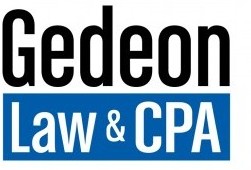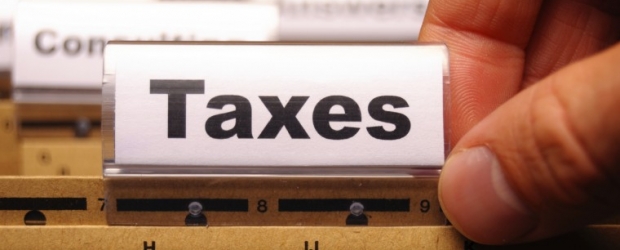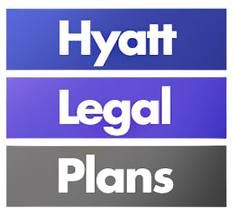As we enter the last quarter of the year, it’s a good time for business owners to start thinking about year-end tax planning opportunities for 2012 and to start planning for the following tax year when it comes to growing cash flow, structuring business operations and identifying your business goals.
With three months left to impact your 2012 taxes, Gedeon Law & CPA put together the following list of 13 tax planning opportunities to consider before the year comes to a close:
1. Buy a New Car
You or your corporation can claim up to $8,000 in bonus depreciation on a new (not used) car placed in service before midnight on December 31, 2012. Add this to the $3,160 luxury limit, and you can deduct up to $11,160 in depreciation (assuming 100% business use).
2. Buy a New Car or SUV weighing over 6,000 Pounds
Dreaming of owning that Maybach 57, let Uncle Sam help you subsidize the purchase. With a gross vehicle weight of over 7,000 pounds, the Maybach, or another vehicle weighing over 6,000 pounds qualifies for three simultaneous tax breaks:
a) A tax write off up to $25,000, and
b) 50% bonus depreciation on amounts not expensed, and
c) Regular depreciation on the balance.
For example, let’s say you buy a $50,000 qualifying SUV for which you can claim 90 percent business use. Your business cost is $45,000 (90 percent times $50,000). With your 90 percent business use, you get to claim a tax write off of $35,500 between your Section 179 expense($25,000), bonus depreciation($10,000) and regular depreciation ($500). In essence, Uncle Sam has helped pay for 71% of the vehicle’s cost. Not a bad gift won’t you say.
3. Buy a Used Car or SUV weighing over 6,000 Pounds
While you don’t get to take advantage of the bonus depreciation, buying a used vehicle still gives you some really good tax breaks. You can still take up to $25,000 as a Section 179 expense plus regular depreciation on the balance.
4. Buy a Qualifying Pickup Truck
For those of you who need a pick up truck, Uncle Sam will let you deduct up to $125,000 if you buy and place in service a qualifying pickup truck (new or used) on or before December 31, 2012. What’s a qualifying pick up truck? This is a truck that a) weighs over 6,000 pounds, has a cargo area(“bed”) of at least 6 feet in length and the bed is not easily accessible from the passenger compartment. How generous is Uncle Sam? Consider that if you buy a $43,000 qualifying pickup truck that you use 97 percent of the time for business, you get to write off $41,710 of the cost of the truck.
5. Buy a Qualifying Van
For those of you who do a lot of deliveries in your business, now is the time to consider buying that new delivery van. To take advantage of the $125,000 deduction allowed by Uncle Sam, the van must a) weigh over 6,000 pounds, b) have a fully enclosed driver compartment and load-carrying device, c) not have seating behind the driver’s seat, and d) have no body section that protrudes more than 30 inches ahead of the leading edge of the windshield.
6. Don’t Trade it in, Sell that Old Business Vehicle to a Third Party
Vehicles owned by you or your business and used for business purposes most likely have built-in tax deductible losses you can take advantage of. Why? Because the value of most vehicles’ decrease over time. Thus, when you sell your business vehicle to a 3rd party, if the business basis is less than the net business sales proceeds, then you have a tax deductible loss. Unfortunately, trading in that old car wont qualify you for this deduction since the IRS treats it as a 1031 exchange and defers the tax basis to the replacement car. At Gedeon Law & CPA, we work with our clients to identify their vehicles that qualify for this possible loss deduction.
7. Buy Office Equipment
Although the limit on cars is $25,000, the overall 2012 limit on Section 179 deductions is $125,000 on qualifying assets like equipment, computers, desks, and chairs. This deduction is designed for the small business. Therefore, this is a very good year to buy business assets to reduce your tax liability.
8. Pay Your Children for Business Chores
Did your under-age-18 children help you in your business this year? If not, they should because you are losing out on some good tax savings. First, wages paid by the parent to the parent’s under-age-18 child for work done in the parent’s business are not only deductible by the parent but also exempt from payroll taxes. Second, your child can use the 2012 standard deduction to eliminate taxes on up to $5,950 in wages. Assuming you pay little 12-year old James $5,000 in wages for work during the year, your business gets to take a tax deduction of $5,000 while James gets to pocket $5,000 tax free. Overall, your family unit now has an extra $2,000 in additional spendable cash(based on a 40% tax rate).
9. Reimburse Your Section 105 Medical Expenses
If you previously put your husband-and-wife Section 105 medical reimbursement plan in place, make sure that the reimbursements are taking place. If you want the deductions this year, you need to make the reimbursements before midnight on December 31.
10. Set Up and/or Make Your 2012 Retirement Plan Contributions
If your retirement plan is not already in place, then let Gedeon Law & CPA help you get either a solo 401(k), SEP-IRA or Simple-IRA in place so that you can obtain a tax deduction for 2012, even when you don’t make that contribution until 2013. In the case of a solo 401(k), it must be place on or before December 31 to obtain a 401(k) deduction for this year. If your plan is established on or before December 31, 2012, you can make your 2012 tax-deductible contribution in 2013 before your 2012 tax filing deadline, including extensions.
11. Charge Expenses to Your Bank Issued Credit Card
Here’s a little known tax tip for you cash basis taxpayers. Using your bank issued credit card to pay for expenses that are not paid off until the following year is a tax write off in the year charged. Unfortunately, those store credit cards like Best Buy or Staples don’t qualify for this deduction. So you might want to consider using your credit card to buy office supplies and other business necessities. If you operate your business as a corporation but you are the personal owner of the credit card, the corporation must reimburse you to realize the deduction. Thus, have your corporation make its reimbursements before midnight, December 31, 2012.
12. Offset Capital Gains and Capital Losses
Consider selling any stocks with capital losses to offset any capital gains. If your capital losses exceed your capital gains, then you may still deduct up to $3,000 of the losses and carry forward your unused losses. Selling your underwater stocks is particularly important if you have a lot of short-term capital gains because you get to kill 35 percent in taxes with 15 percent losses.
13. Give Appreciated Stock to Charity
If you are planning on donating to charity, then consider donating appreciated stock rather than cash. Why? With appreciated stock, you avoid paying tax on the capital gain and you get a Schedule A deduction for the fair market value of the stock. Bottom line, you get a double tax benefit. For example, say you bought stock for $1,000 and it’s now worth $10,000. You give it to a 501(c)(3) charity, and you get to take an itemized deduction for $10,000 and you pay zero tax on the $9,000 profit on the stock sale.
At Gedeon Law & CPA, we offer clients year-end tax planning services designed to help you realize more tax saving tips like these and to help you grow and manage your business into the year ahead.




